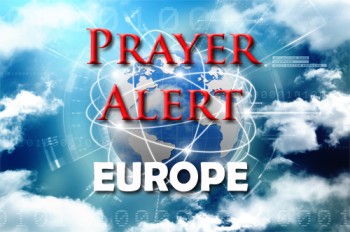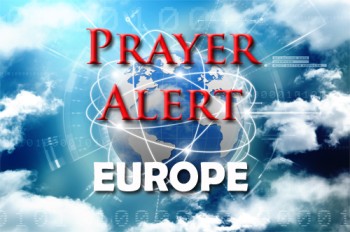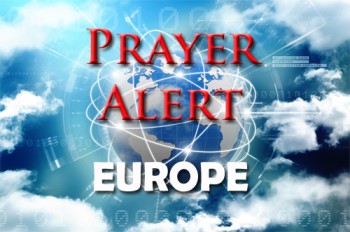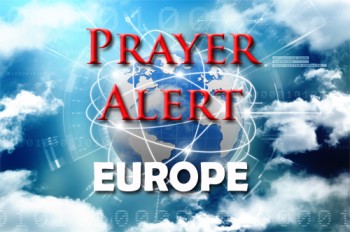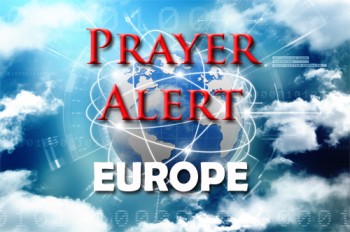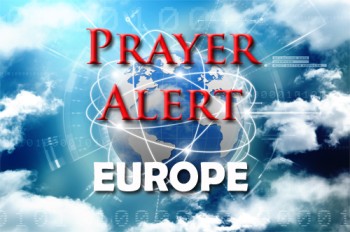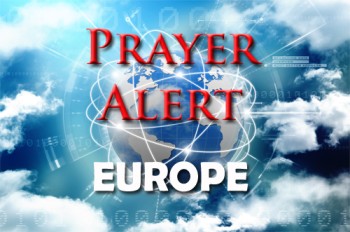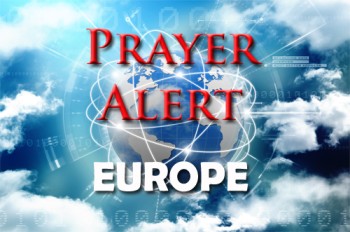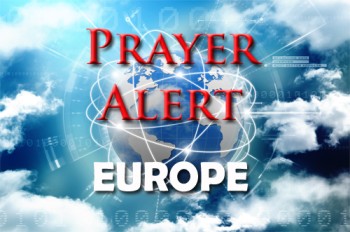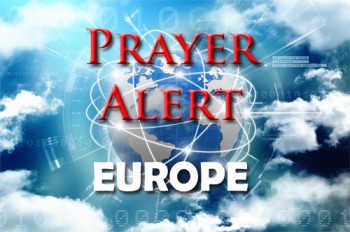Displaying items by tag: Poland
Poland: ‘only Trump can restrain Russia’
On a visit to the UK, Karol Nawrocki, Poland’s president, has warned that Europe faces an increasingly dangerous security environment and believes only Donald Trump can restrain Russia’s ambitions. He said that Russia could not be trusted and was actively testing both Poland’s defences and Europe’s unity. He pointed to large-scale drone incursions from Belarus and Ukraine as evidence of a sustained hybrid conflict, involving military pressure and disinformation. While expressing concern about tensions within the Western alliance, he argued that Donald Trump remained Europe’s essential security guarantor and deserved support for efforts to end the war in Ukraine. Nawrocki praised Britain’s military assistance and criticised European leaders for neglecting defence readiness. With Poland investing heavily in security, he urged greater focus on resilience, cooperation and unity in what he described as dangerous and uncertain times.
Poland: partnership with IJM to combat human trafficking
Poland is one of the highest-risk areas for trafficking in Europe, with 209,000 people currently trapped in modern slavery and many more vulnerable due to migration and regional conflict. Women and children make up the overwhelming majority of those exploited for sex. The country’s geography - bordering seven nations and serving as a transit hub - makes it a key route for traffickers. Although Poland has earned top marks from the USA for its commitment to combating exploitation, law enforcement resources remain stretched too thin to meet the growing need for protection. International Justice Mission (IJM), the world’s largest anti-trafficking organisation, has now launched a formal partnership in Poland, building on its success in Romania and other regions. Working with authorities, NGOs, and survivors, IJM will focus on strengthening investigations, ensuring survivor care, and driving systemic change, with the aim of protecting millions from abuse and exploitation.
Poland: reactions to Russia’s drone attacks
Russia’s unprecedented drone strikes on Poland on 9 September are framed as both a test and a warning to Europe and NATO. Moscow, adept at ‘salami-slicing’ escalation, is probing allied resolve with incremental provocations - from bombings in Kyiv to GPS jamming: each crossing a new line while eliciting mostly rhetoric. Similar tactics enabled the 2014 seizure of Crimea, and hitting Polish territory is a larger slice meant to measure the alliance’s willingness to honour Article 5. A direct military response is deemed unlikely, yet inaction risks projecting weakness and inviting the next escalation. Sanctions talk will grow, but prior rounds neither deterred invasion nor reversed it; energy sanctions that might bite remain politically constrained. The strikes also serve as a warning against deeper Western involvement in Ukraine: Russia’s deniable, ambiguous tactics could complicate any future allied deployment after a ceasefire. The core question: can NATO deter without stumbling into a wider war?
Poland: a response to Vance’s criticism of European leaders
Former foreign minister Radosław Sikorski has responded to US vice-president JD Vance’s critique of Europe regarding migration and free speech. Vance, speaking at the Munich Security Conference, criticised European leaders for disregarding the will of their citizens, undermining elections, and failing to protect religious freedoms. He also questioned Britain's abortion laws and Romania’s recent election, calling for a reassessment of Europe’s approach to these challenges. Sikorski remarked that while Vance’s speech leaned more towards a philosophical one than one that was security-focused, he agreed on the need for greater European defence spending. He emphasised that the global security situation is changing, with rising threats, especially due to Russia’s actions.
Poland / Ukraine: agreement on exhumation of WW2 massacre victims
Tensions between Poland and Ukraine have been strained for years over the Volhynia Massacre, in which Ukrainian paramilitary forces killed around 100,000 Polish civilians during World War 2. Polish prime minister Donald Tusk has now announced that exhumations of the bodies will begin, thanks to cooperation between Poland and Ukraine’s cultural ministries. While Poland describes the massacre as genocide, Ukraine disputes this, viewing it as part of a broader conflict. The dispute intensified after Ukraine banned the search for Polish victims in 2017, but recent efforts, including a joint commemoration by presidents Duda and Zelensky, aim to heal wounds. Meanwhile, Tusk has accused Russia of plotting terrorist acts against Western airlines : see
Central Europe: Storm Boris causes widespread devastation
Central Europe has been severely affected by Storm Boris, bringing heavy rain and snow and causing flooding across Poland, the Czech Republic, Romania, and Austria, with at least 24 reported deaths. In Poland, the town of Nysa has seen the evacuation of 40,000 residents, and other towns face severe damage after rivers overflowed. A state of natural disaster has been declared, with Wroclaw expecting more flooding. Meanwhile, rivers like the Oder and Danube are rising, with Slovakia, Hungary, and Croatia also preparing for potential floods. Emergency services, aided by the military, are working tirelessly across the region to protect communities. On 19 September, Storm Boris reached northern Italy, with similar reports of devastation: see Extreme rainfall is becoming more frequent and intense across central Europe, as across much of the world.
Poland: struggle to control state media
Poland's main evening news studio is under heavy police protection amid a fierce battle for control of the country's media landscape. This struggle emerged following elections that ended eight years of populist rule, leading to promises of media balance by the new coalition government led by Donald Tusk. Under the previous right-wing administration, public TV and radio channels had become highly partisan. In December, the culture minister replaced TVP's top management, resulting in the 24-hour news channel being temporarily taken off the air. Opposition figures protested the move, and rival management teams vied for control. While protesters no longer occupied TVP's reception area, security remained tight, and journalists worked from makeshift spaces, including a converted bathroom. TVP Info, the 24-hour channel, and the flagship evening news show, renamed ‘19:30’, eventually returned with a focus on a more inclusive and balanced approach. The new editor, Pawel Pluska, emphasised a shift away from divisive language and pledged to present diverse viewpoints. Despite ongoing protests by some, there is a clear effort to promote media neutrality in Poland, following years of media polarisation during the previous government's rule.
EU countries welcome Polish election result
Politicians across Europe have been encouraged by the result of the Polish election on 15 October - especially in Germany, the favourite target of the ousted Law and Justice (PiS) party. A German MEP said, ‘I expect that Poland will become a constructive partner and that the change in government will strengthen its standing in Europe’; and Katja Leikert, a Christian Democrat MP who sits on its foreign relations committee, said the election results ‘give hope’ to Europe. German-Polish relations have suffered in recent years. Foreign minister Annalena Baerbock had sought to improve relations last year, travelling to Warsaw on Germany’s national day as a sign of respect for an important ally and neighbour. Instead of welcoming the gesture, however, the PiS leaders formally demanded that Germany pay €1.3 trillion in war reparations. Russia’s reactions to the election results were less enthusiastic: see
Poland: bitter election campaign splits country
In the old shipyard in Gdansk, where striking workers were once the catalyst for major political change, young Poles now worry that the rights and freedoms won by the Solidarity movement over three decades ago are at risk, as the ruling right-wing Law and Justice party (PiS) campaigns to secure a record third term in office. Critics point to the shrinking independence of the courts under PiS and backsliding on women's rights, including a near-total ban on abortion. There is also concern about media freedom - publicly-funded TV becoming a government mouthpiece - as well as acrimonious wrangling with Brussels on issues from judicial reform to migration. Many Poles regard the election on 15 October as the most important since 1989, when Solidarity candidates swept the board in the first partially-free vote since communist rule. In such a polarised race, much of the campaigning has been nasty: opposition leader Donald Tusk has referred to the government as evil and called the prime minister Pinocchio. Mateusz Morawiecki’s party consistently claims that Tusks’s party represents ‘foreign interests’, painting him as a traitor and a stooge of Berlin. Opinion polls put PiS narrowly ahead - though possibly without a large enough majority to form a government.
Poland / Ukraine: dispute over grain escalates
One of Ukraine's staunchest allies, Poland, has said it will no longer supply weapons to its neighbour, as a diplomatic dispute over grain escalates. The dispute began after the Russian invasion forced Ukraine to find alternative overland routes, which led to large quantities of grain ending up in central Europe. Consequently, the EU temporarily banned imports of grain into five countries to protect local farmers, who feared Ukrainian grain was driving down prices. The ban ended on 15 September, but Hungary, Slovakia and Poland decided to keep on implementing it. Remarks by President Zelenskiy at the UN, that it was alarming how some of Ukraine's friends were ‘making a thriller from grain’, have been denounced by Warsaw as unjustified. Prime minister Mateus Morawiecki was adamant Poland was helping Ukraine defeat the ‘Russian barbarian’ by maintaining a military hub, but he said he would not agree to Poland's markets being destabilised by grain imports. Ukraine has filed lawsuits with the World Trade Organisation against the three countries over the bans, which it says are a violation of international obligations.
